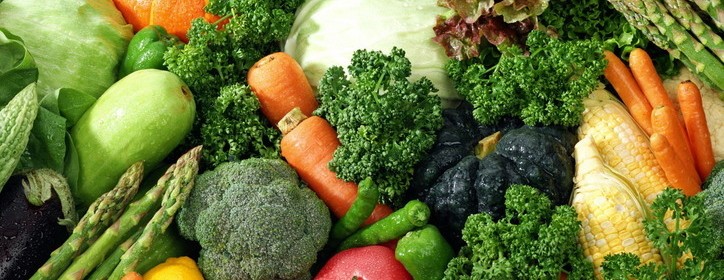Pump Up Your Diet With Iron

Did you know that Iron deficiency is one of the most common nutrient deficiencies in the world, and is one of the earliest kinds of nutrient deficiencies? Iron is one of the most important nutrients for the functioning of the human body. It is a vital nutrient that assists in production of red blood cells and in assisting in the transportation of oxygen to all parts of the body. It also assists in reducing the extent of carbon di oxide in the body, while also assisting in the conversion of blood sugar into energy. Iron is a vital element for the able functioning of the human body.
When there is a deficiency of iron in the body, you might find yourself with shortness of breath, dizziness, cramps and even weakness in the body. Dealing with iron deficiency is not difficult: all you need to do is to include more iron in your diet. Here are some of the foods that can help you incorporate iron in your diet.
– Enrich iron supply in your body by eating organ meats, specifically liver, heart and kidney. It is scientifically proven that these meats are rich in their iron content, along with vitamins, amino acids and other minerals. They are avoidable for pregnant women, though, given that they come with high cholesterol.
– Seafood is also a very powerful source of iron that can enrich your body with sea salts as well.
– Meat, eggs and chicken – i.e., poultry in general, are very rich sources of iron. They are easily ingested and synthesized in the body when consumed.
– For vegetarians, the best sources of iron are dark green leafy vegetables that include spinach and methi, or fenugreek. Beetroots, peas and beans and legumes in general come a close second in the amount of iron they contain.
– Dry fruits, specifically ones such as raisins, dates and apricots are good sources of iron for the body, and are also healthy options.
– Nuts and seeds, such as almonds, pistachios, walnuts, sunflower, pumpkin and sesame seeds are also delicious sources of iron. In addition, some foods such as flattened rice or aval / poha, jiggery and sweets such as chikkis and till laddus are rich in iron sources.
– Legumes and pulses such as dal, rajma, soy, kabuli channa, moong, toor and their sprouted beans are rich in iron, as well.
Most often, non-vegetarians have a greater advantage over vegetarians when it comes to iron and inclusion of iron in their diet. For vegetarians, the key is to get their bodies to absorb more iron than anything else. The best way to do that is to ensure that the consumption of Vitamin C and Folic Acid be included alongside iron, so that the absorption of iron into the blood stream is at a higher rate. For those with a chronically low iron content in the body, the best bet is to have iron supplements in the form of tablets – but this should be done only after being tested and under careful medical supervision.
References:
http://healthmeup.com/news-healthy-living/pump-up-your-iron-consumption/33338
http://healthmeup.com/topic/supplements
Photo Courtesy: gunbase.com
